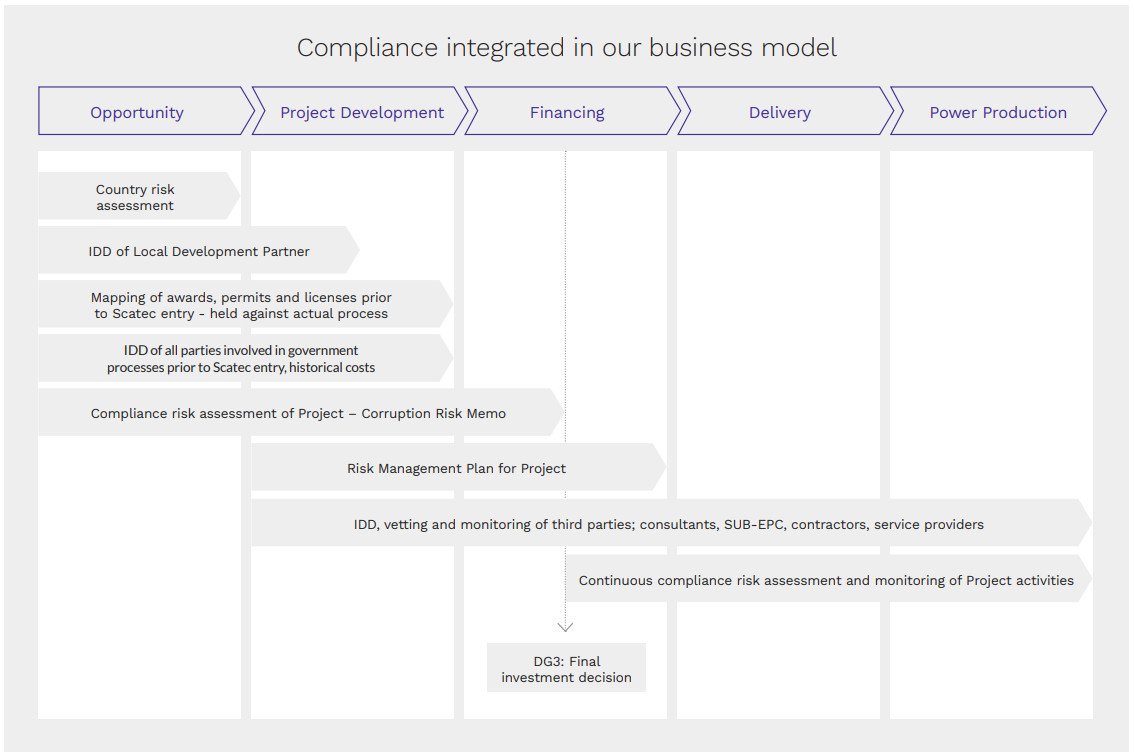Corruption risk assessments form the basis for selecting the areas that requires specific mitigating actions and resource allocation. Each business unit is required to regularly assess and prioritise corruption risks in their activities. The Global Compliance Officer supports the business unit in their risk assessments and in identifying mitigating measures.
We conduct corruption risk assessments at country, project and contract level. Scatec utilises the assessments to pinpoint areas which require specific attention, mitigating action and resource allocation. When risk is identified, it is recorded and reported to the relevant stakeholders in each project to ensure awareness and implementation. In addition, we conduct a group risk assessment for every business unit each year.
Projects moving from opportunity, development, and structuring to the delivery and power-production phases are assessed through Decision Gates. There are four Decisions Gates with clear criteria and requirements related to screening, compliance and risks of corruption.
Contracting Parties such as business partners, suppliers and corporate customers may expose Scatec to reputational, legal, and operational risk. Scatec is committed to taking the necessary steps to manage the risks arising from third-party relationships.
As part of this commitment, no relationship with a third party may be established without appropriate integrity due diligence (IDD) of the business relationship, and no contract shall be entered into without adequate anti-corruption undertakings. All third party relationships shall undergo sufficient monitoring.
All new third parties, hereunder business partners, suppliers and corporate customers must undergo appropriate IDD in accordance with the Integrity Due Diligence Procedure. The IDD requirements for third parties are risk-based and determined by the risk of the country, the scope of work and the annual value of the contract. The relevant Project Manager from Business Development or Solutions is responsible to ensure that the Integrity Due Diligence Procedure is complied with. Detailed guidance of the Integrity Due Diligence process is described in the Integrity Due Diligence Procedure.
Local development partners and consultants assist in development activities, which often includes interactions with Public Officials and government authorities. These business relationships represent a high risk to Scatec, and is therefore placed under specific control measures: Enhanced IDD requirements, tailored Anti-Corruption clauses, and enhanced monitoring activities.



